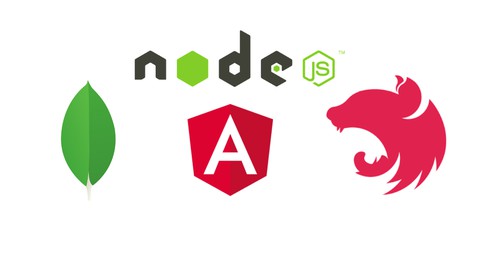
Build Modern MEAN Stack Web App
Modern MEAN Stack web Application development with Node.js, Angular, Nestjs, MongoDB
Created by Haider Malik | 11.5 hours on-demand video course
The term MEAN stack refers to a collection of JavaScript based technologies used to develop web applications. MEAN is an acronym for MongoDB, ExpressJS, Angular and Node.js. From client to server to database, MEAN is full stack JavaScript.
The main reason for choosing the MEAN stack over others is because of the use of a common language for both client-side and server-side. Since, all these technologies are written in JavaScript, your web development process becomes neat. Node.js is a platform that brought JavaScript implementation on the server-side. With Angular using JavaScript on the front-end, it becomes easier to reuse code from back-end to front-end.
MEAN stack offers a modern approach to web development. It also makes use of the power of modern SPAs (single-page applications), which does not require entirely refreshing a web page for every server request like most traditional web applications do. Today there is a trend to develop multiple frameworks that correspond to a single programming language and form a full-stack solution. But, as of now, using MEAN stack is a very effective approach to web development. In this course, we are going to build our backend application Nest.js. Nest.js is a Node.js framework. It is built on the top of Express and Typescript.
What you’ll learn
- NestJs Fundamentals
- Typescript Fundamentals
- Angular Fundamentals
- Build RESTFUL APIs with NestJs and MongoDB
- Build RestFUL APIs with NestJs and Mysql
- Authentication and Authorization using PassportJs
- Add Documentation for your APIS
- Build Single Page frontend app with Angular
- CRUD Application with Angular
- Authentication in Angular Application
Recommended Course
NodeJS made easy for MEAN or MERN Stack
NestJS Zero to Hero – Modern TypeScript Back-end Development









